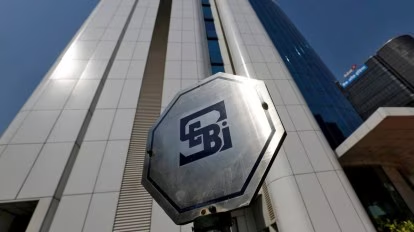SEBI Returns Gaekwad’s Proposal for a Competing Open Offer to Acquire REL Stake
The Securities and Exchange Board of India (SEBI) has returned a proposal submitted by Digvijay ‘Danny’ Gaekwad, a US-based entrepreneur, for acquiring a 55% equity stake in Religare Enterprises Limited (REL). Gaekwad’s offer, priced at Rs 275 per share, was intended to make a competing open offer for the control of REL. However, SEBI rejected the proposal on January 29, 2025, citing non-compliance with the timelines and regulatory processes outlined in the SEBI (Substantial Acquisition of Shares and Takeovers) Regulations, 2011 (SAST).
Gaekwad’s Attempt to Acquire 55% of Religare Enterprises at Rs 275 Per Share Falls Short
Gaekwad’s offer for the acquisition of 55% of REL was seen as an ambitious attempt to gain control of a major player in India’s financial services industry. The proposal came as part of Gaekwad’s broader strategy to expand his portfolio and establish a stronger presence in India’s growing market. If successful, Gaekwad’s entry into REL was expected to provide a much-needed injection of capital and strategic direction to the company.
The offer, which proposed a price of Rs 275 per share, was considered a generous premium over REL’s market price at the time. This created positive sentiment among investors and analysts, who believed that the deal could result in significant benefits for both Gaekwad and REL. However, SEBI’s rejection of the proposal has now thrown a wrench into these plans.
SEBI’s Decision: A Setback for Gaekwad’s Acquisition Strategy
SEBI’s letter to REL indicated that Gaekwad’s proposal did not meet the necessary requirements for an exemption under Regulation 11 of the SEBI (SAST) Regulations. The rejection pointed to issues such as the failure to meet prescribed timelines and the absence of a formal appointment of investment bankers, both crucial steps for regulatory approval. According to SEBI, these lapses rendered Gaekwad’s proposal ineligible for consideration.
Market experts believe that Gaekwad’s failure to comply with SEBI’s processes could be a significant setback for his plans in India. Known for his successful track record in the US, Gaekwad had hoped to bring new capital and strategic expertise to REL. His plans to inject much-needed funds into REL now face delays, and Gaekwad may need to reconsider his approach.
Implications of SEBI’s Decision on Gaekwad’s Acquisition Strategy and REL’s Market Prospects
The rejection by SEBI raises several key questions about the future trajectory of both Gaekwad’s acquisition strategy and REL’s financial outlook. For Gaekwad, this regulatory hurdle presents a significant challenge. However, it is unlikely to deter him entirely. As a seasoned investor, he may seek to address the concerns raised by SEBI and re-submit a revised proposal. This would likely involve adhering to the required procedures, including the timely appointment of investment bankers and ensuring the compliance of all regulatory requirements.
For REL, the rejection of Gaekwad’s offer creates uncertainty in the short term. The company had been hoping for an influx of funds and the strategic direction Gaekwad could provide. With this opportunity now blocked, REL may have to explore other options, such as alternative investors or other funding avenues to secure its financial future. The rejection also raises questions about how REL will navigate its ongoing challenges and whether it can remain an attractive investment target moving forward.
The market response to this development may be mixed. While some investors may view the rejection as a temporary setback for REL’s prospects, others may express concerns about the company’s ability to attract investors who are willing to meet SEBI’s stringent regulatory requirements.
What Lies Ahead for Gaekwad and Religare Enterprises?
Despite the setback, Gaekwad’s future plans for acquiring a stake in REL remain uncertain. Industry insiders suggest that Gaekwad is likely to explore alternative pathways to make his mark on the Indian financial sector. Whether through a new offer or a different investment strategy, Gaekwad may still look for opportunities to capitalize on the growth potential of REL and the broader Indian market.
For REL, the rejection from SEBI is a reminder of the importance of adhering to regulatory norms. As the company continues to face financial challenges, it will need to find ways to remain attractive to investors and secure the capital required for growth. The next steps for REL will likely involve seeking new investors or considering strategic partnerships to strengthen its position in the market.
SEBI’s rejection of Digvijay ‘Danny’ Gaekwad’s open offer for Religare Enterprises highlights the importance of regulatory compliance in India’s capital markets. While this decision represents a significant roadblock for Gaekwad’s acquisition plans, it may also serve as an opportunity for both Gaekwad and REL to reevaluate their strategies. Going forward, both parties will have to navigate the complexities of regulatory approval and market expectations to secure a stable financial future.


Leave a Reply